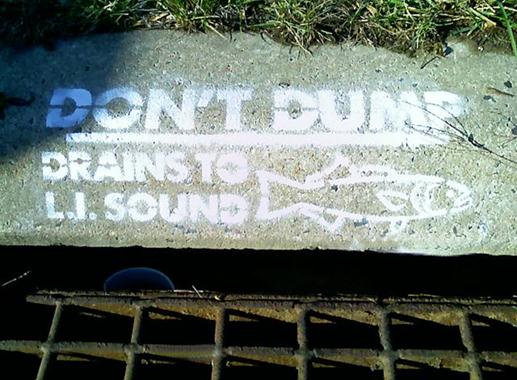Lynne Bonnett is an environmental advocate based in New Haven, CT. Speaking with her is Kevin Kromash, blogger for CFE/Save the Sound.
Kevin Kromash: I see that you are involved in the New Haven Environmental Justice Network. What does this group do?
Lynne Bonnett: It is an advocacy organization, which is all-volunteer. One issue we are currently involved with is sewage control. In certain neighborhoods – those that still have combined pipes for residential sewage and stormwater – all of the rain falling on impervious surfaces goes into the combined sewer pipe and is pumped across the harbor to the East Shore. Sometimes it overflows into the rivers. In addition, a large part of the city is “partially separated,” which means that the drainage from their private property goes into the sewage pipe. That is one of the sources of the overflow into the rivers.
Kevin: What are the impacts when the sewage gets into the rivers?
Lynne: It’s a health hazard for people who contact the water. It causes diseases, skin infections, eye infections, etc. There are people who fish in the rivers for subsistence. It smells like sewage and decreases the recreational value of our wonderful rivers and our quality of life.
Kevin: What should be done to prevent the overflow?
Lynne: We need to look at the source control first [preventing rainwater from entering the sewage pipes]. It is cost-effective and creates jobs. We can provide incentives for landowners to do things on their property to prevent rainwater from entering the pipes. […] We really need to combine source controls upstream with storage facilities downstream without expanding the sewer plant; that is our best option and what most other communities are doing.

Kevin: What are some of the techniques other cities are using?
Lynne: Portland, OR started a “rain barrel school” 20 years ago, and are preventing something like 1.3 billion gallons of rainwater from entering the treatment system every year. Washington, DC has a regional water authority. They are able to bridge the barriers between the government and the community. Other communities are doing things too – partnering with the city, sewer plant, community groups and NGOs, as well as offering incentives for change and educating the public. That’s what we want here.
Kevin: What are some of the waste byproducts from the treatment process, and what is done with them now?
Lynne: In New Haven, we have a sludge incinerator very close to where people live and play, and this is a huge issue. We actually truck in the sewage sludge from other communities. All the heavy metals and other toxic materials end up in the sludge. Those contracts are up for renewal, and we have asked the sewer plant many times to stop trucking it in. When they burn it, we are left with a lot of air pollution. […]
Kevin: How did you come to be interested in these issues?
Lynne: I lived out west for my early adult years. I did a lot of hiking, backpacking, water sports – I love being outside. I understand that clean air, water, and land enhance our quality of life. I moved here because my husband got a job here, and I gravitated towards trying to make the city better. For me, connecting to people is important, and I’m sort of relentless in my advocacy. But it’s hard work; people say they care, and they say “thank you for doing this”…but it’s so hard to make change. At this late stage in my life, it’s about doing things that matter to me, and making these issues open and transparent to everyone. […] Once people know what’s going on, they regain control.
Kevin: What gives you hope on a day-to-day basis?
Lynne: My friends. They are involved in a lot of different things. We have a lot of discussions, and we laugh and have fun.
This interview has been edited for length and clarity. Opinions expressed in Fridays in the Field posts are those of interviewees, and do not necessarily reflect the positions of CFE/Save the Sound.
Posted by Kevin Kromash, blogger, and Laura McMillan, director of communications, for CFE/Save the Sound.

1 thought on “Fridays in the Field #6: Lynne Bonnett on advocacy, justice, and sewage in New Haven”
Comments are closed.